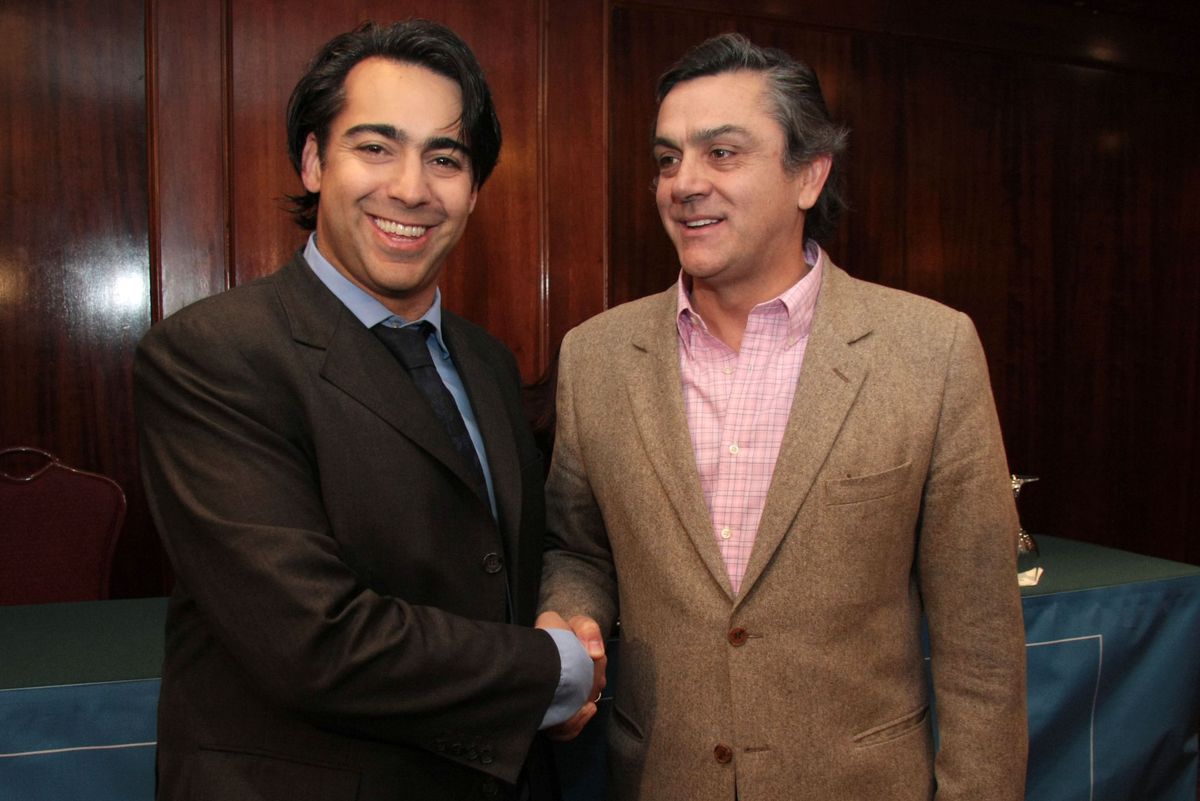The oral trial of those alleged to be involved in the illegal political financing case by the mining company SQM began this Monday in the Santiago Third Oral Criminal Court. After an eight-year investigation, the State Ministry has filed charges of bribery, corruption or tax offenses against eight defendants, including former presidential candidate and leader of the Progressive Party of Chile (PRO), Marco Enríquez-Ominami, and Sebastián Pinera’s former economy minister, Pablo Longueira. “The SQM case is the most serious, complex and important that prosecutors have had to investigate since criminal procedure reform [en el 2000]”, points out by telephone the former prosecutor of the conspiracy, Carlos Gajardo.
The so-called “SQM case,” which emerged in 2015, investigates irregular payments to politicians of different political spectrums by the mining company controlled by Augusto Pinochet’s former son-in-law, Julio Ponce Lerou, whose fortune dates back to his former father-in-law’s dictatorship (1973-1990 ) and in the privatization of state-owned companies. Prosecutors allege that former SQM executive director Patricio Contesse improperly funded politicians through bills for services not rendered totaling more than $8.5 million between 2009 and 2015.
Prosecutors also allege that Longueira, who attended remotely this Monday, received payments to favor the settlement of a mining levy bill (a tax on the activity) that SQM lawyers say was drafted. The former right-wing senator faces 818 days in prison and fines for bribery. Enríquez-Ominami is accused of tax offenses and can be sentenced to up to four years in prison. The former Socialist MP and four-time presidential candidate gave assurances this morning that he wanted the trial to take place. “I want it to show that all of this was an abuse, that it has a political bias, but that’s for the judges to decide,” he said.
 A Chemical and Mining Society (SQM) lithium mine in the Atacama Desert, 2019. Cristobal Olivares (Bloomberg)
A Chemical and Mining Society (SQM) lithium mine in the Atacama Desert, 2019. Cristobal Olivares (Bloomberg)
Prosecutors investigated 180 people, but most cases were dropped or suspended under certain conditions. The other defendants are Longueira’s secretary, Carmen Valdivieso; former Christian Democrat MP Roberto León; the secretary to the presidency of the right-wing Independent Democratic Union (UDI) party, Marisol Cavieres; ex-Secretary General of the Progressive Party, Cristián Warner, and ex-Ambassador in Prague during Michelle Bachelet’s government, Marcelo Rozas.
“The decisions of the Internal Revenue Service not to sue and those of (former national prosecutor) Jorge Abbott to narrow the investigation ended with a very small portion in court,” says Gajardo. However, the former prosecutor is pleased that the most serious allegation, bribery, has been made. “The allegation implies that a law of the republic was drafted by the lawyers of the company hardest hit. The illusion that the law is sovereign is broken,” says Gajardo, who points out how “dramatic” it was to learn about such events as the Penta case, the plot of tax fraud and the illegal financing of political campaigns launched one of the most important business groups in the country.
“I think it explains a number of events including the social outburst. These investigations were one of the inputs. Politically, Boric’s election cannot be explained without this case, which has to do with the prestige of the centre-left. Finding that those political forces that were very anti-Pinochet were funded by the dictator’s son-in-law was very harsh and explains the defeats they have suffered in recent years,” he adds.
The reading of the order – a document summarizing the case – which will review all the allegations, the amounts allegedly cheated, the bills in question and other details, will take about two weeks. Once the first part is completed, come the arguments of the parties. All in all, according to those involved, the process can take up to two years. Prosecutors initially produced 14,609 documents in evidence – thousands were excluded – 651 witnesses and 52 experts.
The trial was supposed to start on February 1, but the car wasn’t ready and the judge who was supposed to review it was on vacation. The Supreme Court called for the opening of a summary for judges of a “possible disciplinary responsibility” they might have in “delaying and postponing” the trial.
Subscribe to the EL PAÍS America newsletter here and receive all the latest news from the region

